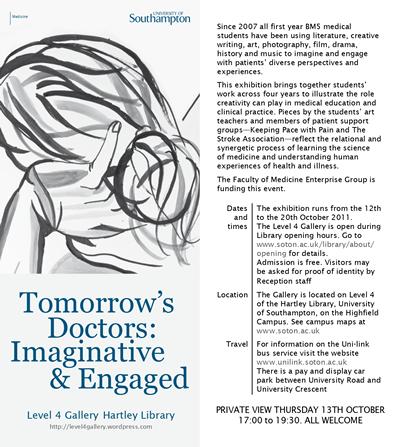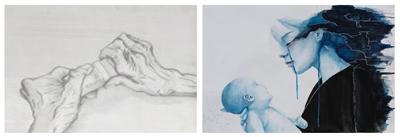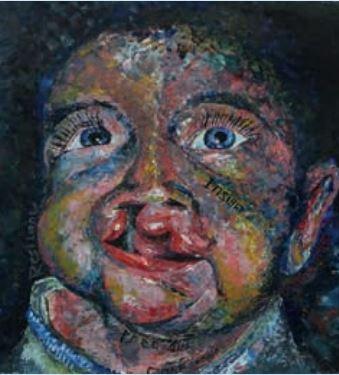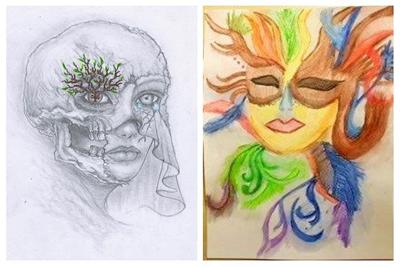Exhibitions
In the Medical Humanities module students produce creative outcomes and reflective accounts as part of the assessment to encourage them to explore health topics and demonstrate an approach to medicine that is questioning and reflective. Some of this work has been exhibited.
‘Tomorrow’s Doctors: Imaginative and Engaged’, Level 4 Gallery, Hartley Library, funded by the Faculty of Medicine Enterprise Group, 2011
This exhibition illustrated the role creativity can play in medical education and clinical practice. Pieces by the students’ art teachers and members of patient support groups – Keeping Pace with Pain and the Stroke Association – reflected the relational and synergetic process of learning the science of medicine and understanding human experiences of health and illness.

‘The Art of Compassion’, Level 4 Gallery, Hartley Library funded by the Wellcome Trust, 2014
The Art of Compassion exhibition brought together work that considers the nature of compassion and the potential that art has to generate understanding and transform medical practice.
Conference
The exhibition ran concurrently with the annual conference of the Association for Medical Humanities which was hosted by The University of Southampton Faculty of Medicine and brought together academics, health professionals and students to consider the nature of compassion from historical, philosophical, cultural and global perspectives. The conference also facilitated discussion around whether compassion could be taught or learned and how the challenges of sustaining compassion can be met.
Useful Downloads
- Annual Conference 2014: 'Art of Compassion' Flyer
- Annual Conference 2014: 'Art of Compassion' Plenary Speakers & Performers
- Annual Conference 2014: 'Art of Compassion' Conference Programme
Need the software?PDF Reader
Students’ creative outcomes and reflective comments


Art Competitions
In 2015 the Saving Faces Medical Student Society in collaboration with the charity held an art competition to raise awareness of facial disfigurement and the possibilities of modern surgery.

In 2017 the Saving Faces Medical Students Society in collaboration with Southampton Showcase gallery held an art competition with the theme ‘Myself in Health’. Students submitted postcard portraits that were exhibited in the gallery with 5000 postcard portraits from entries all over Southampton.

Both competitions were judged by Dr Catherine Lamont-Robinson, artist, University of Bristol lecturer and cofounder of outofourheads, an arts in medicine website.
Conference Dissemination